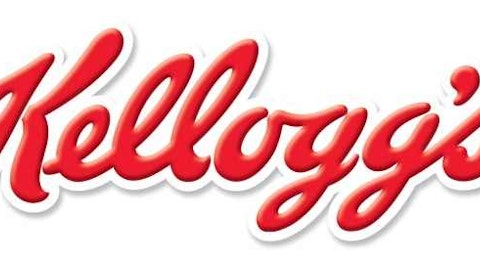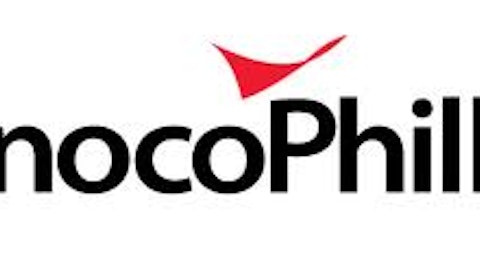Despite calling a proposed tax overhaul in the state a “game changer,” the oil industry’s top players in Alaska remain nervous. Call it once burned and twice shy, but the industry is holding back on committing more capital to the state’s declining oil fields. The concern here is twofold: First is nervousness that this overhaul will fail, and even more concerning is that federal regulations are too unclear at the moment.
This overall regulatory and tax uncertainty has caused ConocoPhillips (NYSE:COP) to put its 2014 Chukchi Sea project plans on hold. The project was just one of its many worldwide exploration and appraisal projects that the company expects to drive future production growth. However, the timing of the decision is odd, considering the company has said that it would commit more capital to the state if the tax overhaul goes through.

Conoco’s current plan is to invest $2.5 billion in Alaska as part of its five-year development plan. That spending, however, isn’t enough to offset its production declines in the state, though it would hold those declines to just 3% per year through 2017. It has said that it could spend additional development capital under improved fiscal terms. However, until the tax overhaul is passed, the company won’t pursue additional development.
The overhaul has the potential to cut $1 billion in taxes for the oil companies. That would provide a nice savings, as these companies provided the state with $8.9 billion in tax revenue last year. Representatives from ConocoPhillips (NYSE:COP), BP plc (ADR) (NYSE:BP) and Exxon Mobil Corporation (NYSE:XOM) all spoke before the Alaskan House Finance Committee earlier this week to make sure their voices were heard.
All three view the proposed structure as being much more conducive to increasing production, because the current structure is progressive, which limits the incentive for increasing production when prices are high. The structure starts out at as a base tax of 25% on profits when oil prices are $30 a barrel, and then it increases 0.4% for every $1 per barrel that prices rise over $30. That has yielded tax rates between 40% and 80% of profits for some companies. The new structure would be a simple flax tax rate, with a reduced rate for areas of new production.
While there’s a general nervousness that the overhaul won’t pass, the real issue for Conoco’s putting Chukchi on hold lies with the federal government. According to Conoco, a recent Department of the Interior report calling for the industry to work with it to develop an Arctic-specific model for offshore oil and gas drilling in Alaska adds too much uncertainty. Because of this unknown, it’s simply not worth the risk of committing capital at this point.
Overall, drilling in the Arctic is a risky venture. Royal Dutch Shell has already pulled its 2013 program after the company experienced a number of problems. The company also was never able to finish its work on a spill barge as part of its spill response plan, while a containment dome was damaged in testing. Shell has spent about $5 billion here from 2006 to 2012, with very little to show for it.
Conoco doesn’t want to find itself in that position, so it’s going to take a more cautious route. It plans to work with the government and other leaseholders to clearly define the requirements, and then it will re-evaluate its capital plans. The company has a number of other major exploration projects already, so it can afford to be cautious.
The article 1 U.S. State That Big Oil Is Scared Of originally appeared on Fool.com.
Fool contributor Matt DiLallo owns shares of ConocoPhillips (NYSE:COP). The Motley Fool has no position in any of the stocks mentioned.
Copyright © 1995 – 2013 The Motley Fool, LLC. All rights reserved. The Motley Fool has a disclosure policy.

